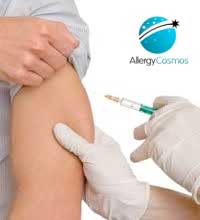Most flu vaccines are produced inside chicken eggs, raising concerns that people with egg allergies may have a reaction to a protein in the vaccine. Where the vaccine was essential to have, an allergist would get involved by giving the patient an allergy test and maybe giving the dose of the vaccine over a period of time. But in the last two years, there has been in-depth research looking at the safety of giving the vaccine to people with egg allergies.
"The evidence shows that the time to withhold the vaccine on account of somebody's egg allergy has passed," said Dr. Matthew Greenhawt, an allergist, and immunologist at the University of Michigan Health Systems. Greenhawt and his colleague Dr. James T. Li, an allergist at the Mayo Clinic in Rochester, Minnesota, made new recommendations this month for administering the influenza vaccine to those with egg allergies. The vaccines can be safely given to the majority of adults and children with egg allergy but should be given under the supervision of an allergist or immunologist.
The research also showed that current influenza vaccines contain only trace amounts of egg protein, lower amounts than in years past. And many vaccine manufacturers now include information about their products' egg content, making it possible for providers to choose vaccines with the lowest egg content. The researchers recommend that children and adults either receive the full dose of the influenza vaccine or receive the vaccine in two doses — 10 percent of the full dose followed by the other 90 percent. In each case, individuals should be monitored after each shot for 30 minutes, to see if they show signs of allergy symptoms. However, it is still not clear whether children and adults who have had a serve allergic reaction to egg in the past should be vaccinated. Several recent studies found that a severe egg allergic reaction in the past is not a risk factor for an allergic reaction to the flu vaccine.
And in the future, people with egg allergies need not worry at all about flu vaccines, thanks to new technology which allows vaccines to be manufactured in cells, rather than eggs. Celtura is an HINI (swine flu) vaccine developed by Novartis and made in animal cells. Clinical trials carried out at the University Hospitals of Leicester showed the Celtura gives a strong immune response against the HINI virus. Currently, the new vaccine is only approved in Germany and Switzerland but it could come to the UK soon. The flu jab is safe for the majority of people suffering with asthma, but if you do have an egg allergy as well, do discuss this issue with your doctor. A flu jab cannot give you flu, despite what some people say, although a few people do experience a few flu-like symptoms after having it. Being protected against flu, including swine flu, is better than exposing yourself to the risk of an asthma attack triggered by a bout of flu.




